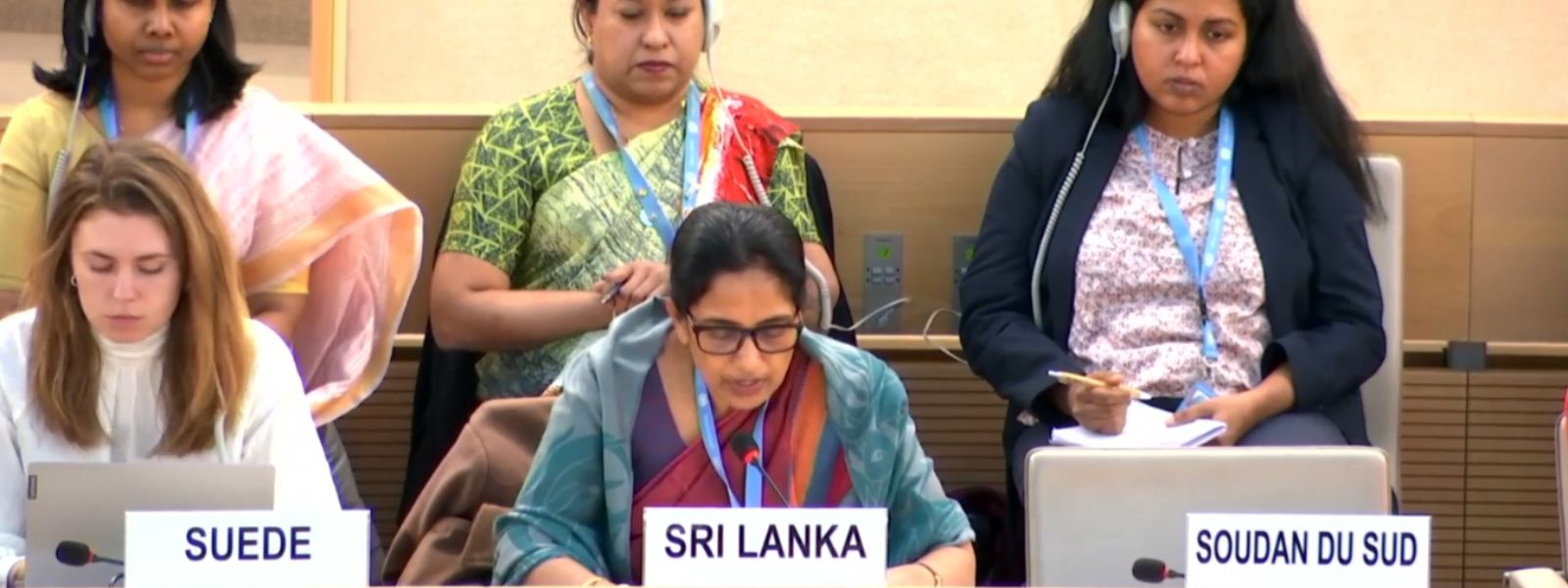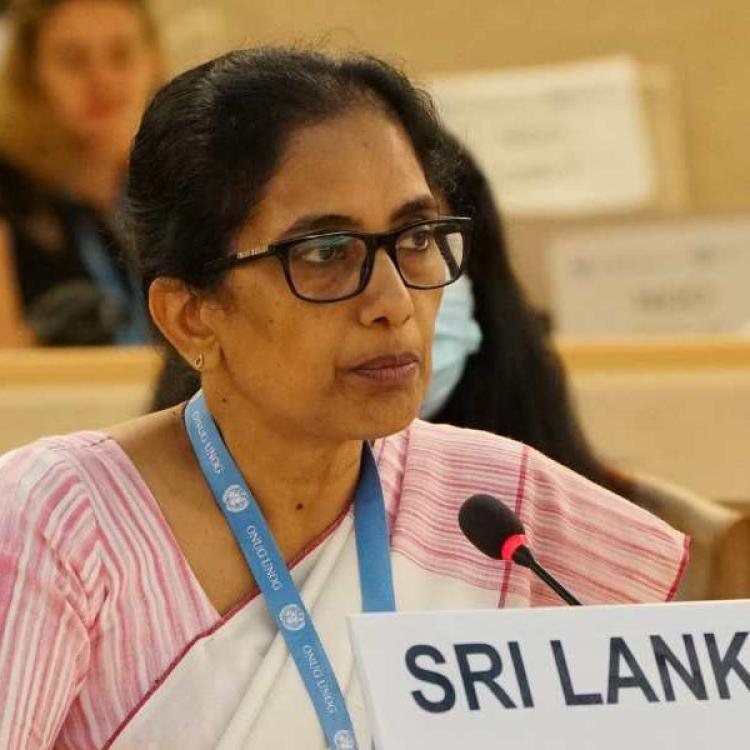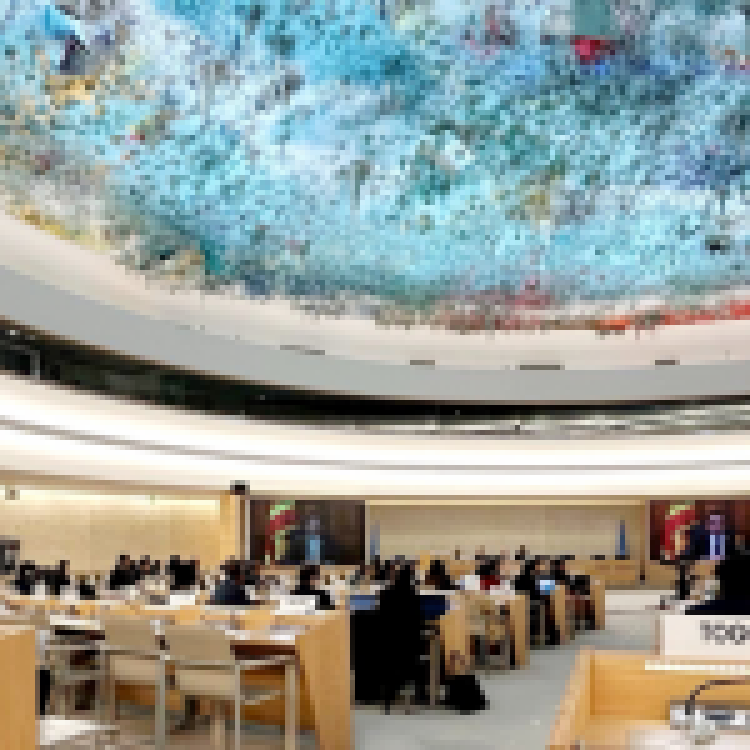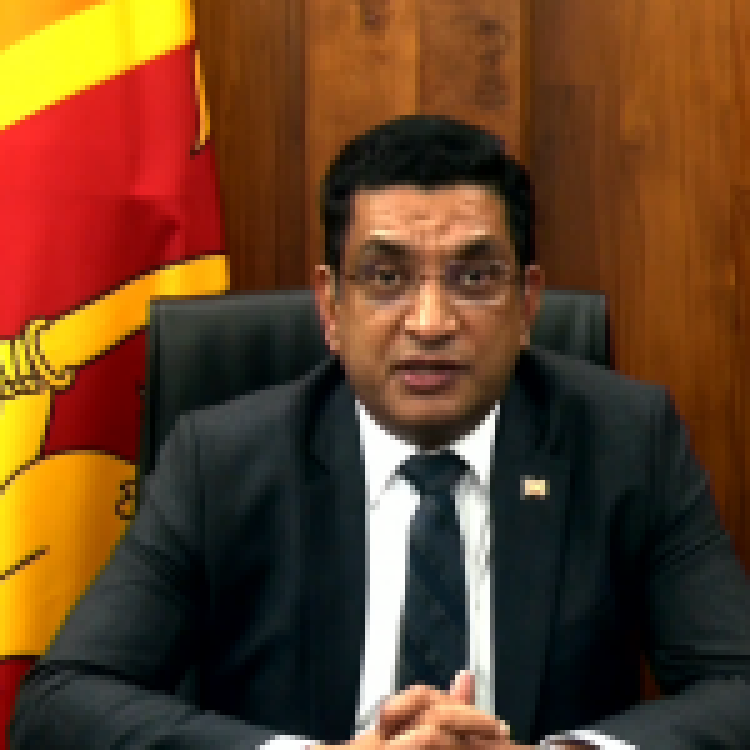
The government of Sri Lanka has once again rejected Human Rights Council Resolution 51/1 at the United Nations Human Rights Council, claiming the report exceeds its mandate on human rights and that the Council should focus on more pressing humanitarian crises that require urgent attention.
Himalee Arunatilaka, Ambassador and Permanent Representative of Sri Lanka to the United Nations in Geneva, noted in her statement that the resolution was adopted without Sri Lanka’s consent through a divided vote. "We disassociate from the report for the reasons stated in our detailed response, available on the OHCHR website," she said.
Arunatilaka herself is embroiled in controversy, as an Australian Federal Court has ordered her to pay $543,000 in unpaid wages and interest to a domestic worker who served her during her time as Sri Lanka's Deputy High Commissioner in Australia. Speaking at the session, she expressed surprise that the report ventured beyond its human rights mandate to comment on macroeconomics, financial, and budgetary matters, which she said fall under sovereign parliamentary jurisdiction. She also criticized the report for projecting a negative outlook on Sri Lanka’s future, contrary to the views of other international partners. Arunatilaka further pointed out that the report failed to mention the "brutal acts of terrorism and human rights violations" committed by the LTTE, including child recruitment, suicide bombings, and the assassination of democratically elected leaders in Sri Lanka and abroad.
Arunatilaka, a staunch loyalist of the Sri Lankan regime, has consistently sought to deflect accusations of war crimes and genocide committed against Tamils during her tenure in Geneva. She stated that the mechanism was unproductive and unwarranted, exceeding the Council's mandate. "The selective and disproportionate focus on handpicked developing countries while ignoring critical situations elsewhere is unacceptable. We urge the Council to avoid politicization and double standards and to focus on urgent humanitarian crises to maintain its credibility."
Sri Lanka continues to deflect attention from its obligations under the resolution, often referencing humanitarian issues in other countries while downplaying its own. Recently, Sri Lanka's Minister of Foreign Affairs, Ali Sabry, who was the lawyer for war criminal Gotabaya Rajapaksa, urged the Council to shift its focus to Gaza.
In October 2022, the UNHRC adopted Resolution 51/1 on Sri Lanka, which aims to "extend and reinforce the capacity of the Office of the High Commissioner to collect, consolidate, analyze, and preserve" evidence that may be used in future war crimes trials. The resolution states that evidence collected could be used in "relevant judicial and other proceedings," including courts around the world, to prosecute those accused of violating international humanitarian law.
Since the massacres during the Mullivaikkal genocide in 2009, where tens of thousands were killed, Tamils have consistently called for an independent international accountability mechanism to prosecute those responsible for rights abuses. However, no prosecutions have taken place to date.



